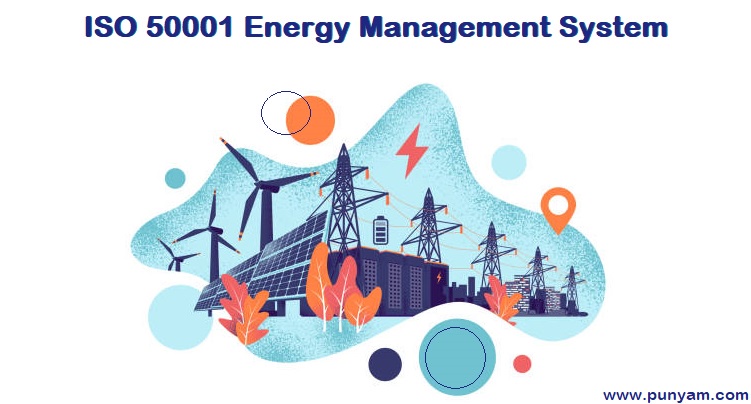Organizations of various sizes and industries can use the framework provided by ISO 50001 to build best practices for energy management. By reducing their energy usage and improving their operational efficiency, organizations can use this framework to manage, monitor, and maintain their energy performance. The constant improvement emphasis of ISO 50001 standard might help a company lower energy-related costs and their environmental impact.
The standard assists businesses in developing the systems and procedures necessary to increase their energy performance through better energy usage, efficiency, and consumption. Additionally, it helps businesses set up an energy management system (EnMS). An EnMS is a system that aids a company in achieving its energy-related objectives. It consists of procedures, measurements, and roles. This system needs to take into account all facets of power use and monitoring and be based on accepted best practices.
The framework offered by ISO 50001 standard can be used by organizations to create an energy efficiency improvement policy as well as goals and targets to assist them achieve it. They can use it to make energy-related decisions that take data utilization into account. Organizations can analyze the effectiveness of their energy strategy, evaluate the results of their energy efforts, and continuously enhance their energy management with the aid of the ISO 50001 standard. The Plan-Do-Check-Act (PDCA) structure for continuous improvement will serve as the foundation for an EnMS created using ISO 50001. The framework is made to make it possible for the company to integrate energy management into its current operational procedures.
The most recent iteration of the ISO 50001: 2018 standard was published On August 21, 2018, by the International Organisation for Standardisation. In addition to lowering operating expenses, implementing ISO 50001 is a terrific approach to support your company's entire sustainability strategy. No truly successful environmental sustainability plan is complete without a thorough energy consumption reduction element, including the introduction of environmental and energy key performance indicators (KPIs).
Using ISO 50001 standard will help you the best plan for maximizing your renewable energy sources or finding more energy-efficient equipment to complete the same tasks. Even if you haven’t reached a stage where you’re ready to start making those changes, using ISO 50001 will give you concrete energy usage data that makes for great sustainability report material and is useful during the decision-making process.
If you use ISO 50001 to cut back on overall energy use or move to more renewable sources, it can also have a significant impact on air emissions and greenhouse gas (GHG) emissions. The organization can lower GHG emissions linked to the energy suppliers, which can have a significant impact on required and optional carbon footprint reporting.
Although achieving ISO 50001 certification isn't mandatory, also many businesses choose to do so because of the advantages it offers or to show that they have the best energy management system in place to third parties. Here are a few of the business categories that are most likely to apply for ISO 50001 certification.
- Manufacturing & Industrial Firms: Energy management systems can help organizations that are involved with manufacturing, processing, and industrial operations, which frequently require a lot of energy, use less of it, and save money.
- Commercial Businesses: Retail stores, office buildings, hotels, and other commercial facilities can manage and lower their energy use with ISO 50001, which will result in economic savings and a smaller environmental impact.
- Public Sector and Government Entities: The ISO 50001 standard can be used by public institutions like government buildings to increase energy efficiency and show environmental stewardship leadership.
- Educational Institutions: The ISO 50001 standard can be used by colleges, universities, and other educational institutions to control energy use on their campuses and promote sustainability.
- Healthcare Facilities: Healthcare facilities such as hospitals and clinics frequently have significant energy requirements. Healthcare facilities can optimize their energy use and cut costs by using an energy management system.
- Utilities and Energy Providers: Through the application of ISO 50001, utilities and energy providers can reduce their energy usage and show their dedication to sustainable practices.
It's crucial to remember that ISO 50001 is a flexible standard that may be modified to suit the unique requirements and circumstances of any organization. With the proper ISO 50001 auditor training obtaining the ISO 50001 certification can be easy and beneficial for any organization that uses energy and is interested in enhancing its energy performance, cutting expenses, and lessening its environmental effect.
Source: https://punyam.wordpress.com/2023/05/20/iso-50001-standard-what-types-of-companies-ought-to-be-certified-in-energy-management/


No comments yet